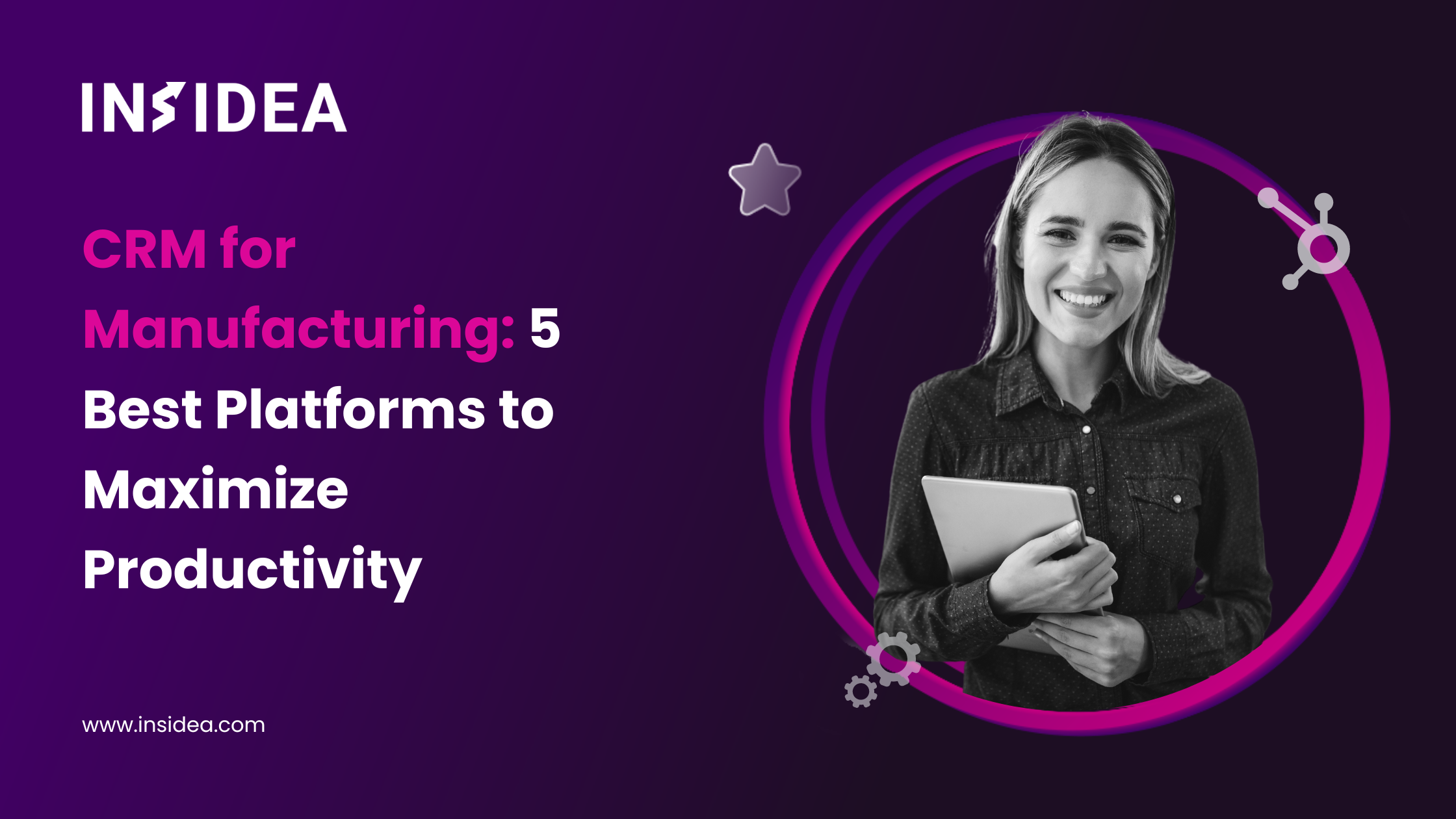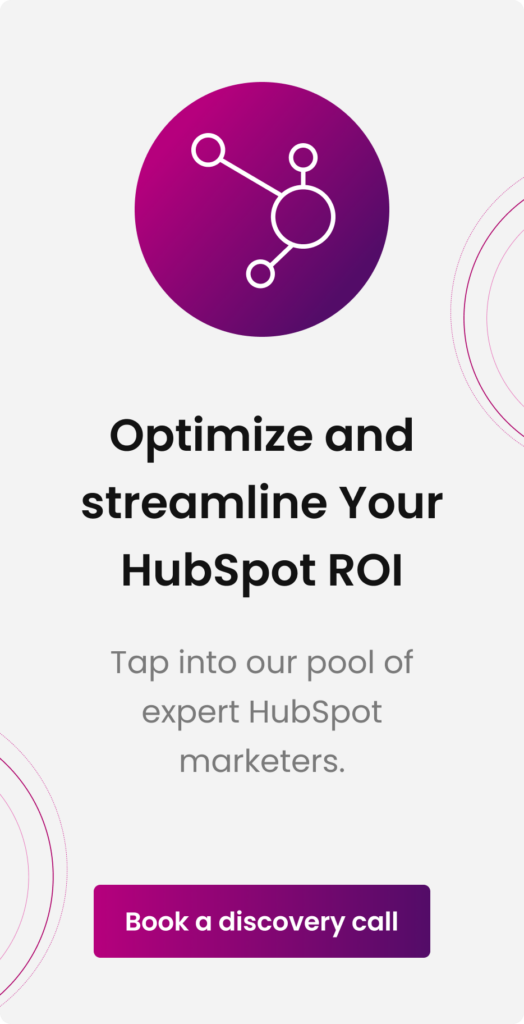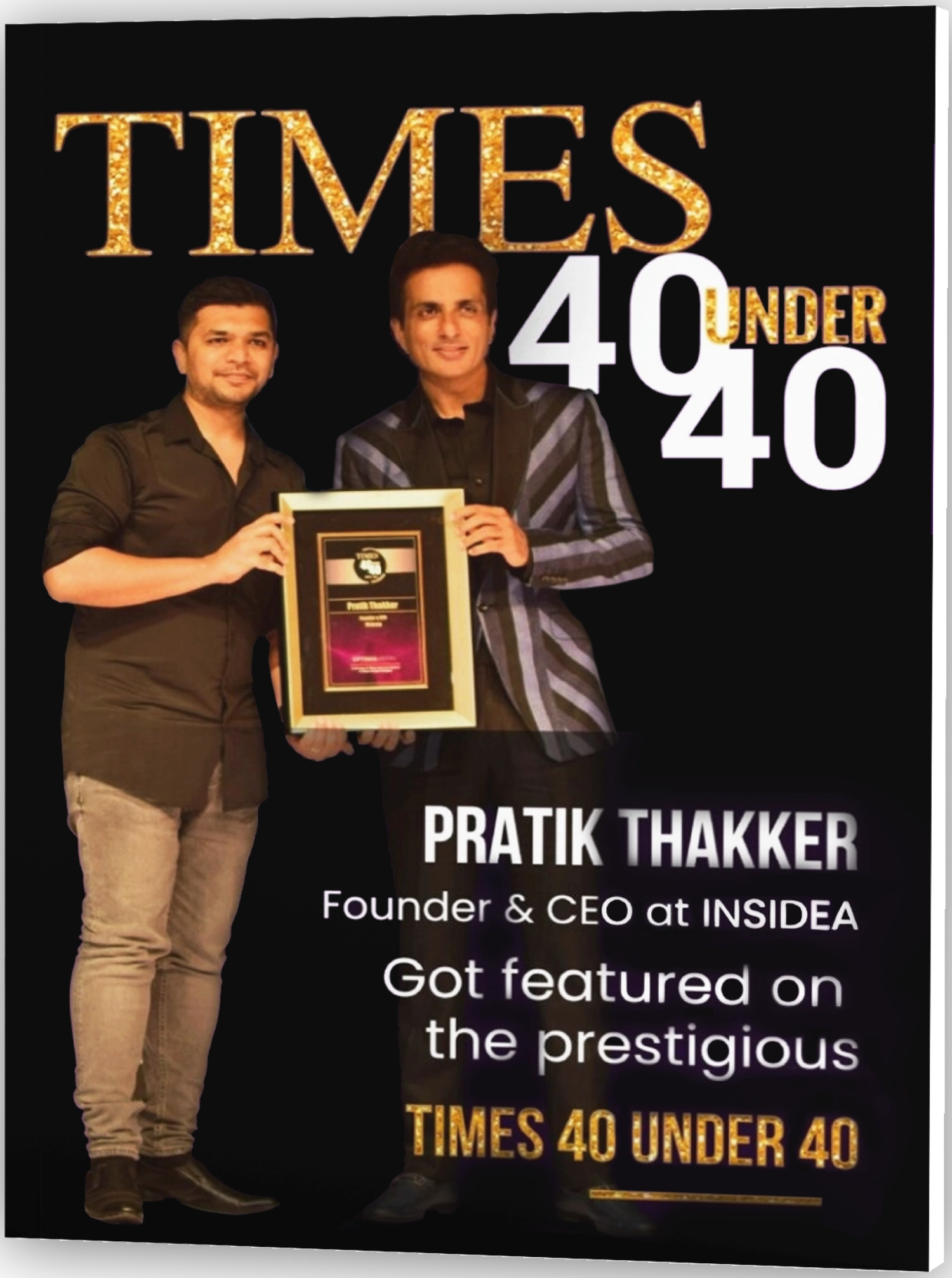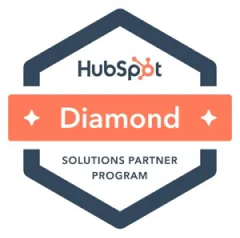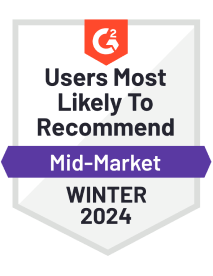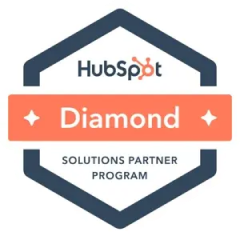The integration of effective customer relationship management (CRM) systems into manufacturing processes is no longer just an option but a necessity for staying competitive. CRM for manufacturing is the key to unlocking enhanced customer satisfaction, streamlined operations, and increased sales.
In this blog, we’ll explore the 5 best CRM for manufacturing platforms that have been transforming how manufacturers interact with their clients, manage their sales processes, and optimize productivity.
The aim is to provide you with valuable insights into how these platforms can be used to create stronger relationships with customers, improve operational efficiency, and drive business growth. Whether you’re a small-scale manufacturer looking to scale up or a large enterprise seeking to refine your CRM strategy, this guide offers essential information to help you make an informed decision.
What is a CRM for Manufacturing?
A CRM for manufacturing tool is a software system designed to assist manufacturers in understanding and capitalizing on their relationships with customers, suppliers, partners, and other stakeholders.
A manufacturing CRM facilitates various business processes, such as lead generation and management, sales management, customer service and support, marketing automation, analytics, and reporting.
It offers a centralized repository for customer data, enabling manufacturers to monitor and manage customer interactions across multiple touchpoints and at any point in the customer’s lifecycle.
By providing a comprehensive view of customer data and enabling targeted, personalized communication and engagement, a manufacturing CRM aims to help manufacturers establish stronger, more profitable relationships with their customers.
When your organization utilizes a manufacturing CRM, it demonstrates a commitment to streamlining its sales and marketing processes, boosting customer loyalty and retention, and ultimately driving revenue growth.
The Top 5 Reasons Why You Need a CRM for Manufacturing Tool?
Maintaining a strategic edge requires more than just efficient production processes. The heart of modern manufacturing success lies in how businesses manage their relationships with customers, predict market trends, and streamline their supply chains. Here is a list of five reasons your business needs a CRM for manufacturing tool:
1. Better Close Rates and Sales Performance
A CRM system offers a unified platform where all sales-related communications are housed with potential or existing customers to store details about leads or customers. When sales representatives can access comprehensive customer profiles and histories, they are better equipped to foster trust, understand specific needs, and nurture relationships, which increases the chances of securing or renewing new contracts. An organized sales team with clear pipeline visibility can operate more efficiently.
2. Increased Customer Satisfaction and Loyalty
A CRM ensures regular, timely, and relevant customer communications, enabling businesses to nurture and maintain robust relationships to quickly address inquiries, leading to swift and efficient problem resolution.
When continually engaged and valued, a satisfied customer exhibits increased loyalty, brings repeat business, and acts as a brand advocate, amplifying the business’s reputation in the market.
3. Better Demand Forecasting
CRM tools provide a dynamic snapshot of the sales pipeline, enabling businesses to anticipate future demand based on ongoing engagements and identifying and addressing potential bottlenecks, ensuring a consistent and timely production flow.
4. Greater Supply Chain Visibility
When a CRM’s data is synergized with insights from an ERP system, it offers a holistic view of the entire operation, from lead generation to product delivery, and aids in making informed decisions.
It provides enhanced visibility into production schedules, inventory levels, and procurement needs. This intelligence ensures optimal resource utilization, timely production, and cost-effective operations.
5. Product Quality Improvements
A CRM system establishes a direct communication channel with end-users, allowing you, as manufacturers, to gather invaluable feedback about your products. This helps you make necessary changes to your products, ensuring they meet or exceed market expectations.
By understanding the needs, preferences, and pain points of your consumers, you can innovate and introduce products that cater specifically to market demands, ensuring a competitive edge.
The Main features of a CRM for Manufacturing Tool
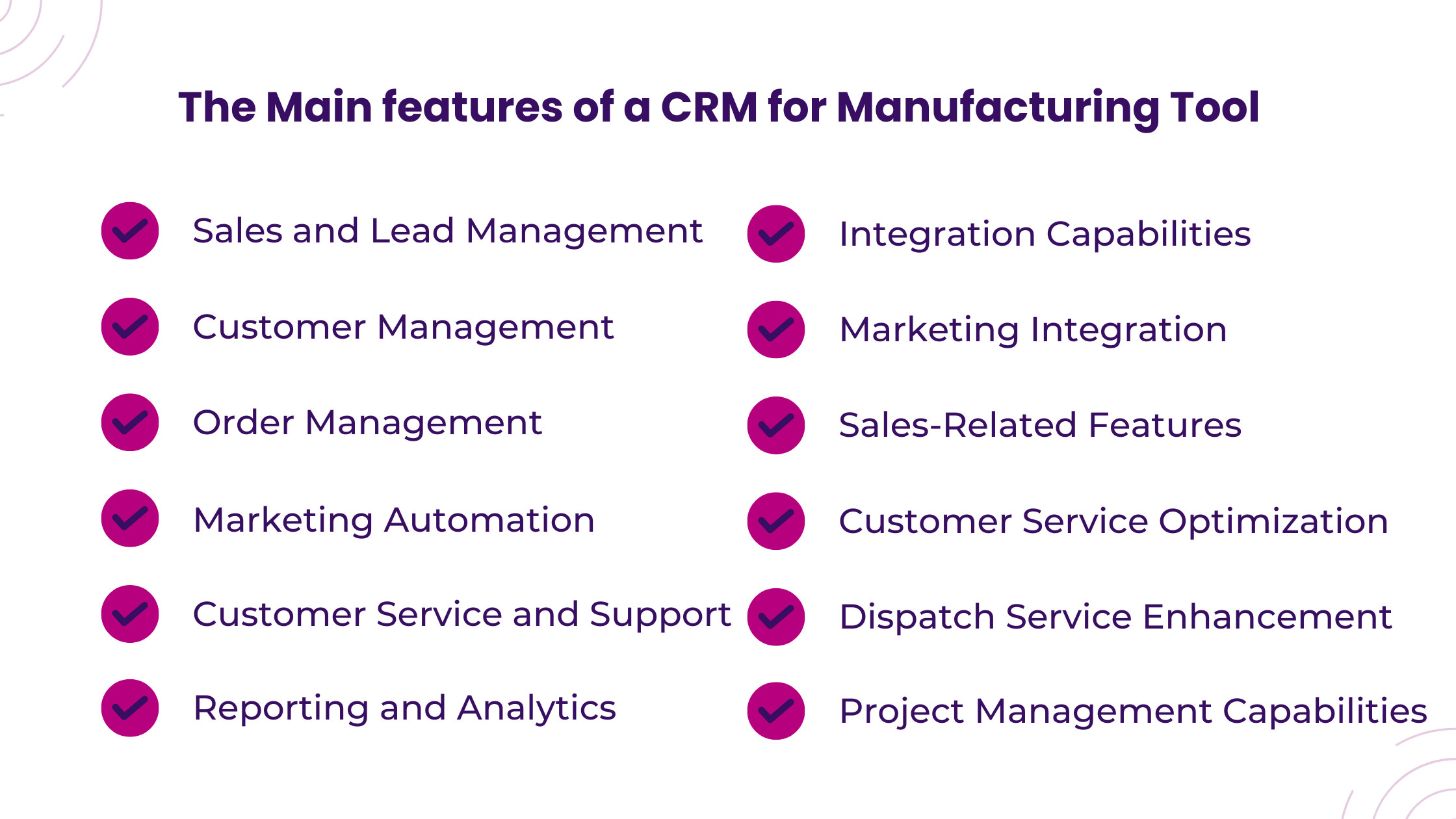
The manufacturing sector, which accounts for a quarter of global economic activity, is characterised by an ongoing need for innovation and efficiency improvement. To accomplish these objectives, it is beneficial to implement a CRM for manufacturing businesses that is tailored to this industry. Here is the list of benefits that are provided by a CRM for manufacturing platform:
1. Sales and Lead Management
It centralizes the sales process, from lead generation to deal closure. It also enables the tracking of leads, prioritizing potential clients, and automating follow-ups. Furthermore, it facilitates the identification and targeting of high-value prospects.
2. Customer Management
A CRM provides a comprehensive storage system for customer data, including contact details, order history, and communication logs. It offers a 360-degree view of the customer, enabling recognition of upselling and cross-selling avenues.
3. Order Management
It streamlines the entire order lifecycle, from entry to shipping and billing. This ensures transparency into order statuses, current inventory levels, and delivery schedules.
4. Marketing Automation
A CRM tool empowers businesses to draft and implement data-driven marketing campaigns. It assists in assessing campaign results and determining the ROI. It also streamlines tedious marketing tasks, ensuring messaging is tailored based on customer behavior and preference.
5. Customer Service and Support
It enhances real-time customer assistance and efficiently manages customer inquiries, case resolutions, and feedback, ensuring swift problem-solving.
6. Reporting and Analytics
A CRM provides in-depth insights into business functions such as sales, marketing, and customer service. It enables the tracking of KPIs and the identification of potential areas for enhancement.
7. Integration Capabilities
A CRM facilitates integration with other enterprise systems like ERP, supply chain management, and accounting software. This promotes seamless data exchange across various departments.
8. Marketing Integration
It assists in the creation of optimized online campaigns and facilitates the identification of effective content and ideal times for communication, ensuring higher engagement rates.
9. Sales-Related Features
It promotes data centralization, allowing easier access to critical information for sales teams. It also helps recognize potential loyal customers and uses artificial intelligence to craft optimal sales strategies.
10. Customer Service Optimization
It enables contact through the client’s preferred communication channels. It presents in-depth analyses, highlighting avenues for cost reduction and service enhancement. This promotes personalized engagement, enhancing client satisfaction.
11. Dispatch Service Enhancement
It efficiently organizes and delegates tasks to technicians. It is also helpful to use data centralization for quick access to critical intervention details. A CRM leverages automation to match technician expertise with specific needs, promoting efficient service delivery.
12. Project Management Capabilities
It facilitates effective project planning and resource allocation and offers tools for time management, billing, spending, and reporting. It also provides a collaborative portal to streamline project execution and communication.
Integrating these features in a CRM for manufacturing streamlines operations, enhances customer relationships, and drives growth. Adopting such a comprehensive system can significantly propel a manufacturing business toward success.
The Benefits of Using a CRM for manufacturing
CRMs are an excellent instrument for managing customer relationships, including customer information, leads, and opportunities, as well as deals, quotes, and order status, in order to improve customer experiences.
But many manufacturers believe they are unnecessary. In recent years, the manufacturing industry has become much more customer-centric, and a CRM for manufacturing is an indispensable instrument for helping manufacturers become more organised, sell more products, and create happier customers.The following is a non-exhaustive list of benefits associated with digital solutions currently deemed indispensable.
1. Better Client Management Through CRM
Every time a client is contacted, information is provided that optimizes your relationships with prospects and customers. By displaying complementary data, a CRM enables the customization of clientele.
You will be able to acquire their trust while empowering them to make greater purchasing decisions.
2. A CRM centralizes data and facilitates access to information.
Naturally, the centralization of relevant data facilitates access to this information. Each department can rapidly access accurate, real-time data with just a few clicks. Optimized global administration marketing, customer insight, field service, and sales functionalities boost your sales and brand image.
3. A Perfect Answer for Boosting Productivity and Agility
In addition to the numerous features listed previously, you could also consider the following pertinent benefits of CRM for your business:. It helps improve communication between each department, prospects, and customers. It also helps to achieve significant time savings attributable to the automation of repetitive duties, which in turn results in more productive employees
4. Optimize Your Sales Numbers and Profits
Numerous CRM software features provide significant benefits. Implementing customer relationship management software will expeditiously increase sales while ensuring that costs are effectively managed.
The manufacturing sector is at a pivotal crossroad in an era of rapid technological advancements and shifting market dynamics. As competition intensifies and customer expectations evolve, there’s an imperative need for manufacturers to reinvent their operational strategies. Central to this transformation is the adoption of customer relationship management systems. A For modern manufacturers, it is a robust framework that integrates and streamlines sales, marketing, production, and service processes.
5 Best CRM Software for Manufacturing: Enhancing Efficiency and Customer Relations
In the manufacturing sector, CRM software is essential for managing customer data, streamlining sales processes, and enhancing collaboration across departments. These tools offer functionalities ranging from lead management to advanced analytics. Below, we explore the features and benefits of some of the best CRM software for manufacturing, providing a detailed overview of each.
1. HubSpot
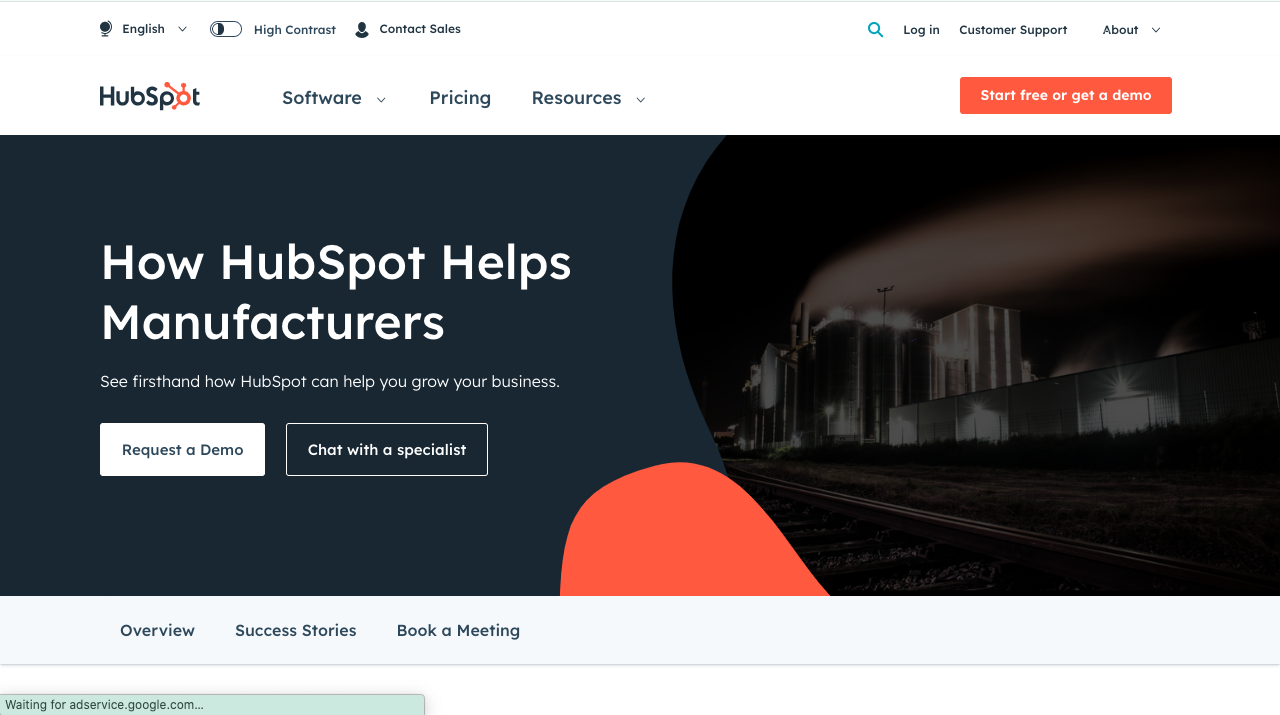
Image Source: HubSpot
- Pricing: Free basic plan; Starter at $50/month; higher tiers for more features
- Integration: It works seamlessly with other HubSpot tools like Marketing Hub and Sales Hub.
- Customization: It has customizable dashboards and reports and automated lead capture and generation tools.
- Limitations: There are limited customization capabilities in the free version; there is no built-in telephony; and there is limited support for free users.
2. ClickUp
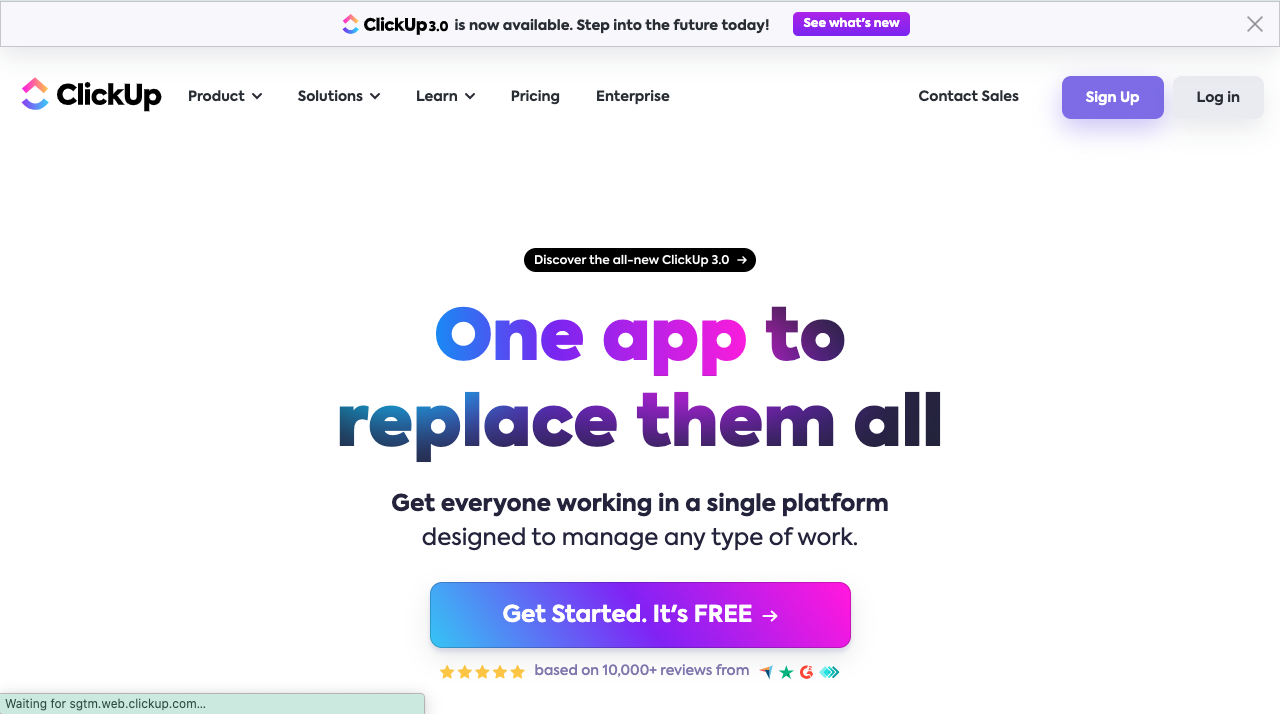
Image Source: ClickUp
- Pricing: Free plans are available; Paid plans start from $5/month per user
- Customization: It is a highly customizable platform with numerous project management features.
- Views and Fields: Over 15 custom views, including a list view; create custom fields specific to manufacturing needs.
- Analytics: It has real-time reporting and advanced analytics capabilities with custom dashboards.
- Workflow Management: Custom statuses for project stages and workflow automation tools.
- Integration: It is compatible with over 1,000 work tools and includes a mobile app for remote access.
- Limitations: Steep learning curve; not all views are available on the mobile app.
3. Thryv
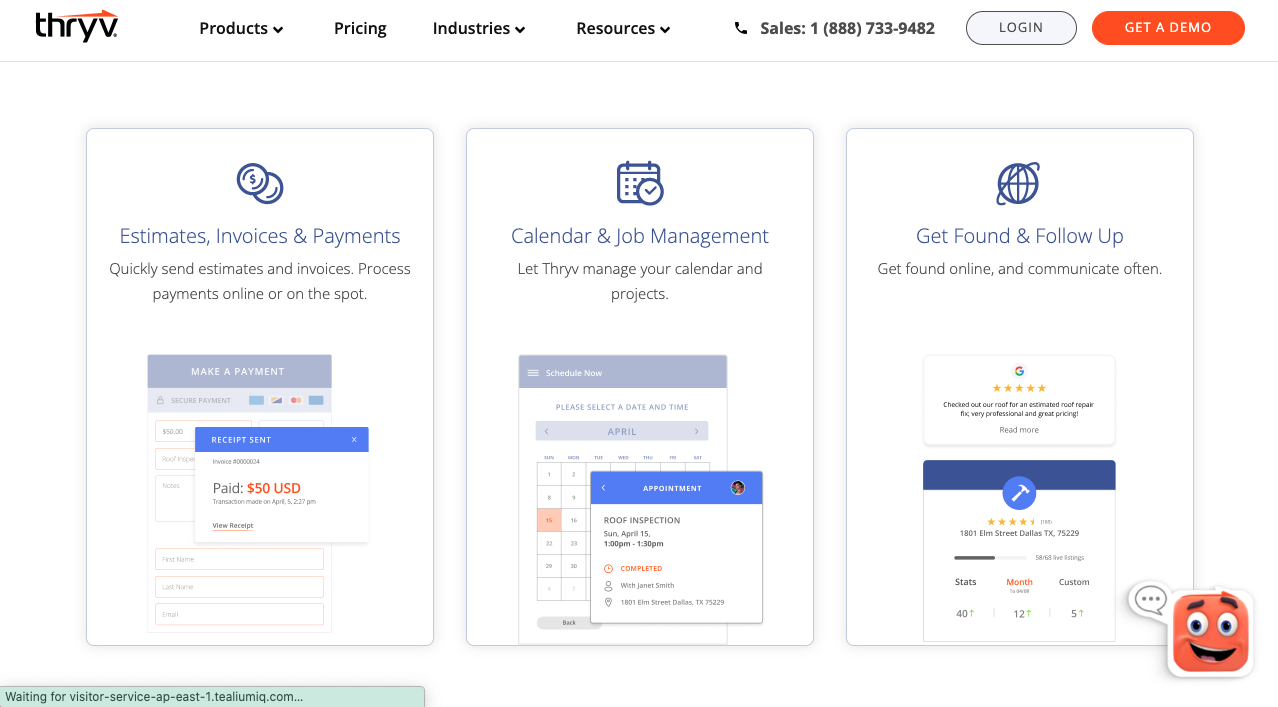
Image Source: Thryv
- Pricing: Starter at $45/month; higher tiers available
- Appointment Scheduling: Integrated scheduling tailored for manufacturing.
- Payment Processing: Inbuilt capabilities for handling payments.
- Email Marketing: Robust tools for managing customer interactions and running email campaigns.
- Limitations: Mobile app issues; limited customization; lack of a built-in calling functionality.
4. FreeAgent CRM

Image Source: FreeAgent
- Pricing: Free plan is available; Professional plan is priced at $29/month/user; Enterprise plan is priced at $99/month/user
- Lead Management: It has automated lead management for efficient tracking.
- Pipeline Management: It has intuitive tools for managing sales pipelines.
- Ease of Use: It has a user-friendly interface, suitable for small businesses.
- Limitations: There are limited integrations and reporting capabilities; no mobile app.
5. NetHunt CRM
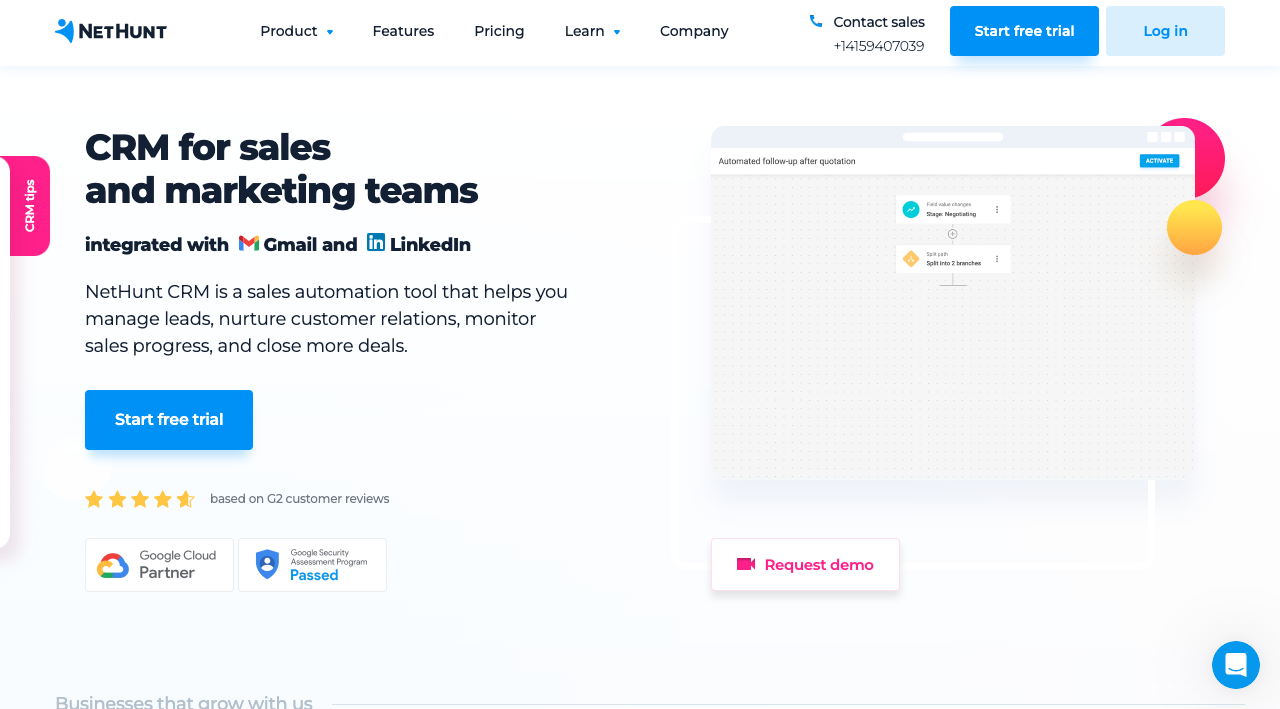
Image Source: NetHunt
- Pricing: Free basic plan; Professional at $24/user/month; Enterprise at $48/user/month
- Gmail Integration: Seamlessly integrates with Gmail for streamlined communication.
- Workflow Automation: Customizable workflows and pipelines; automated lead capture.
- Mobile Access: Includes a mobile app for remote operations.
- Limitations: Limited customization options; no built-in telephony; limited support for free users.
Each of these CRM solutions offers unique features tailored to the manufacturing sector. From managing customer interactions to automating sales processes and providing real-time analytics, these tools are designed to enhance operational efficiency and customer relationship management.
The Bottom Line
In a nutshell,CRM software fortifies a manufacturer’s ability to foster lasting relationships with stakeholders, predict market trends, and respond to challenges with agility. It offers a distinct competitive advantage by marrying the precision of data analytics with the personal touch of relationship management.
The symbiotic relationship between manufacturing and CRM is not just about enhancing productivity or boosting sales numbers; it’s about shaping a future-ready enterprise that is customer-centric, proactive, and adaptive.
For manufacturers still contemplating the leap into the world of CRM, it’s not just about investing in software. It’s about committing to a vision of growth, resilience, and continuous improvement. The question isn’t whether you can afford to invest in CRM, but can you afford not to?
Unlock Your Business Potential With Expert HubSpot Support!
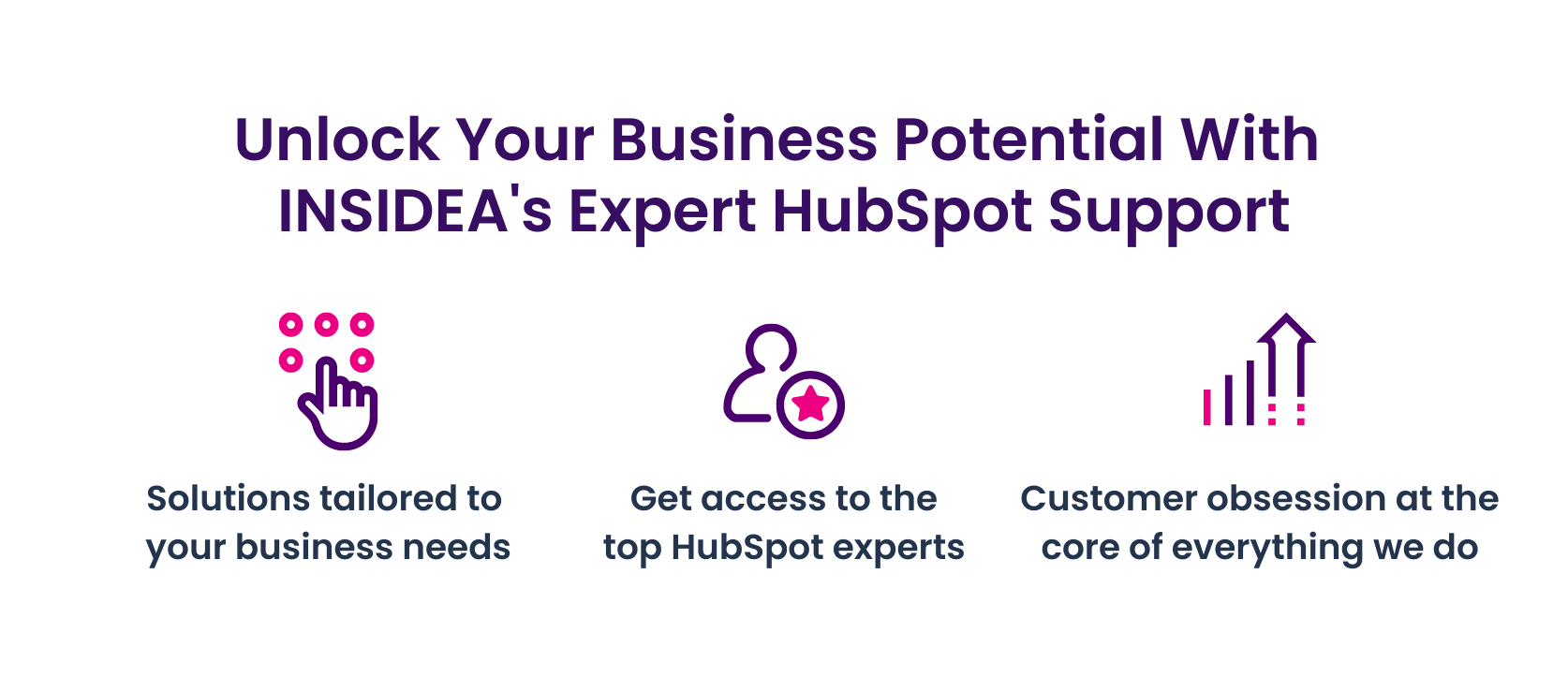
As a HubSpot Solutions Partner, we take pride in assisting you with streamlining your HubSpot efforts. With our best-in-class marketing, sales, and service solutions, we help you scale exponentially. INSIDEA’s HubSpot specialists have the required in-depth knowledge and can provide expert guidance on how to use the platform to meet your business needs.
Get in touch today to learn more about how INSIDEA can help you succeed!
- Tailored Experience: For us, user experience is the primary focus. Thus, INSIDEA works with you to ensure your HubSpot experience is tailored to your business needs.
- Industry Expertise: Our team specializes in the setup, implementation, and optimization of HubSpot tools, as well as being well-versed in HubSpot best practices to ensure your business has the highest ROI possible.
- Customer Obsession: Customer satisfaction is the key to success, and we strive to ensure that our customers’ needs are met and exceeded every time.
At INSIDEA, we understand the importance of valuable HubSpot Strategies that understand your target audience and drive conversions. Sign Up to explore how we can help you with your upcoming projects.




